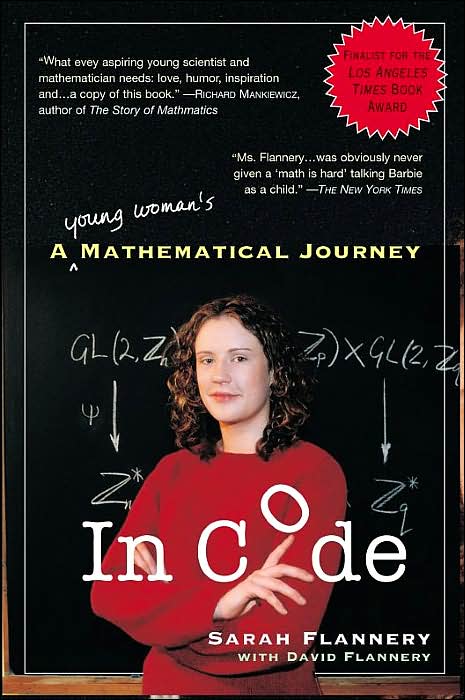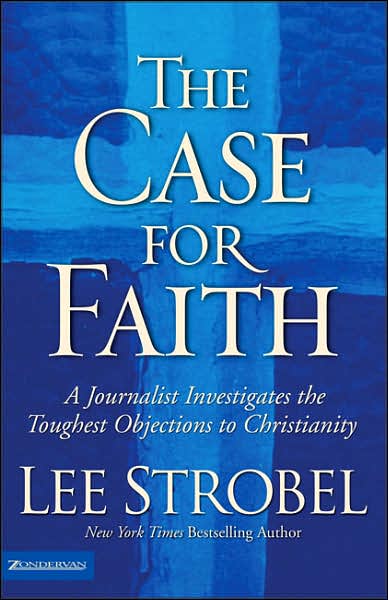 MNRay.net
MNRay.netEric’s Homepage
Booklog Main
Index of Authors
Logs by Year
1993
1994
1995
1996
1997
1998
1999
2000
2001
2002
2003
2004
2005
2006
2007
2008
2009
 |
 MNRay.net
MNRay.net |
|
|

‘God, Wade,’ he said, ‘I’d kill to be murdered.’
‘Great-looking salad bar,’ Ernie said. ‘Did you see it?’
‘I certainly did. Salad bars are like a restaurant’s lungs, Ernie. They soak up the impurities and bacteria in the environment, leaving us with much cleaner air to enjoy.’
‘Maybe I’ll pass.’
Florian said, ‘Steven, my boy, having lots of fat people eating a lot of fattening food is a good, good thing for America.’
‘You’ve lost me, sir. And Steve is fine.’
‘Like anything in life, Steve it’s numbers, numbers, numbers. Lots of fat people means lots of happy farmers, happy agrochemical makers, happy teamsters, happy fast-food staffs – happiness and joy for all. Fatness ripples through the entire economy in a tsunami of prosperity.’
‘Fat people have more medical problems, though. Common sense.’
‘But that’s the beauty of it, Steve. At present we’re at the perfect equilibrium point between an obese society and a prosperous society. If all Americans were to gain even one more ounce, the medical system would be overtaxed and the economy would suffer. Were those same Americans all to lose even one single ounce, Steve, the economy would nose-dive.’
‘They use dolphins in cancer trials?’ Nickie was jolted.
‘Of course, dear. Nasty, nasty little beasts. They’d mug you, and rape you, and take your handbag inside of three seconds if they thought they could. The tuna industry is doing us a large favor.’

An increasingly common subterfuge among some science writers of late has been to produce a graph of speed increase against time starting with the speed of the horse in the nineteenth century. Such a graph extended to the present time is virtually an exponential curve since starting at horse velocity it continues to the speed of modern space proves. So far this is fair enough. The increase has been spectacular and dramatic enough by any standard. Unfortunately there is a temptation, admittedly a very strong one, to extrapolate such a curve to the year 2,000 and beyond. When this is done we find that light velocity is likely to be attained around the turn of the century, which is clearly unmitigated rubbish. There is about as much sense in this as expecting a sick person with a rising temperature to ignite! The gradient of such a time-velocity curve must eventually level off.




All the officer patients in the ward were forced to censor letters written by all the enlisted-men patients, who were kept in residence in wards of their own. It was a monotonous job, and Yossarian was disappointed to learn that the lives of enlisted men were only slightly more interesting that the lives of officers. After the first day he had no curiosity at all. To break the monotony he invented games. Death to all modifiers, he declared one day, and out of every letter that passed through his hands went every adverb and every adjective. The next day he made war on articles. He reached a much higher plane of creativity the following day when he blacked out everything in the letters but a, an, and the. That erected more dynamic intra-linear tensions, he felt, and in just about every case left a message far more universal. Soon he was proscribing parts of salutations and signatures and leaving the text untouched. One time he blacked out all but the salutation “Dear Mary” from a letter, and at the bottom he wrote, “I yearn for you tragically. A. T. Tappman, Chaplain, U.S. Army.” A. T. Tappman was the group chaplain's name.
“A million years?” persisted the jeering old man with keen, sadistic zest. “A half million? The frog is almost five hundred million years old. Could you really say with much certainty that America, with all its strength and prosperity, with its fighting man that is second to none, and with its standard of living that is the highest in the world, will last as long as …the frog?”
Milo's planes were a familiar sight. They had freedom of passage everywhere, and one day Milo contracted with the American military authorities to bomb the German-held highway bridge at Orvieto and with the German military authorities to defend the highway bridge at Orvieto with antiaircraft fire against his own attack. His fee for attacking the bridge for America was the total cost of the operation plus six per cent, and his fee from Germany for defending the bridge was the same cost-plus-six agreement augmented by a merit bonus of a thousand dollars for every American plane he shot down. The consummation of these deals represented an important victory for private enterprise, he pointed out, since the armies of both countries were socialized institutions. Once the contracts were signed, there seemed to be no point in using the resources of the syndicate to bomb and defend the bridge, inasmuch as both governments had ample men and material right there to do so and were perfectly happy to contribute them, and in the end Milo realized a fantastic profit from both halves of his project for doing nothing more than signing his name twice.
“In a democracy, the government is the people,” Milo explained. “We're people, aren't we? So we might just as well keep the money and eliminate the middleman. Frankly, I'd like to see the government get out of war altogether and leave the whole field to private industry. If we pay the government everything we owe it, we'll only be encouraging government control and discouraging other individuals from bombing their own men and planes. We'll be taking away their incentive.”
“So?”
“So?” Yossarian was puzzled by Doc Daneeka's inability to comprehend. “Don't you see what that means? Now you can take me off combat duty and send me home. They're not going to send a crazy man out to be killed, are they?”
“Who else will go?”
It was said that he lacked aggressiveness when his forces had been ordered to move forward in a feint to draw Iraqi artillery fire. Such decisions, made under the trying circumstances of battle, can be explained by any number of factors.
As I went back through the Pentagon in November 2001, one of the senior military staff officers had time for a chat. Yes, we were still on track for going against Iraq, he said. But there was more. This was being discussed as part of a five-year campaign plan, he said, and there were a total of seven countries, beginning with Iraq, then Syria, Lebanon, Libya, Iran, Somalia, and Sudan. So, I thought, this is what they mean when they talk about “draining the swamp.” It was further evidence of the Cold War approach: Terrorism must have a “state sponsor,” and it would be much more effective to attack a state—with complete confidence that it can be taken down—than to chase after individuals, nebulous organizations, and shadowy associations.
He said it with reproach—with disbelief, almost—at the breadth of the vision. I moved the conversation away, for this was not something I wanted to hear. And it was not something I wanted to see moving forward, either.
What a mistake! I reflected—as though the terrorism were simply coming from these states. Well, that might be true for Iran, which still supported Hezbollah, and Syria, complicit in aiding Hamas and Hezbollah. But neither Hezbollah nor Hamas were targeting Americans. Why not build international power against Al Qaeda? But if we prioritized the threat against us from any state, surely Iran was at the top of the list, with ongoing chemical and biological warfare programs, clear nuclear aspirations, and an organized, global terrorist arm.
And what about real sources of terrorists—U.S. allies in the region like Egypt, Pakistan, and Saudi Arabia? Wasn’t it the repressive policies of the first, and the corruption and poverty of the second, that were generating many of the angry young men who became terrorists? And what of the radical ideology and direct funding spewing from Saudi Arabia? Wasn’t that what was holding the radical Islamic movement together? What about our NATO allies, whose cities were being used as staging bases and planning headquarters? Why weren’t we putting greater effort into broader preventive measures?
It seemed that we were being taken into a strategy more likely to make us the enemy—encouraging what could look like a “clash of civilizations”—not a good strategy for winning the war on terror. Taking down these seven states would do little to address directly the terrorists who attacked the United States, but it would probably make us the enemy of many governments in the region and to much of the Islamic world. The way to beat terrorists was to take away their popular support. Target their leaders individually, demonstrate their powerlessness, roll up the organizations from the bottom. I thought it would be better to drive them back into one or two states that had given them support, and then focus our efforts there. It would not be wise to go after a whole series of states first and risk dispersing terrorists among increasingly anti-American Islamic populations.
Security of the Internet and related technologies demonstrates a particular case of vulnerability, despite report after report warning of dangers. In fact, one of the great ironies is that the businesses most at risk are the least likely to admit failings for fear of further damaging business reputations. Hence, “the market” won’t solve this problem; only government-directed standards are likely to be effective. This poses a continuing dilemma for an administration viscerally opposed to regulating business.
In the first place, there was an undeniable qualitative advantage—it wasn’t just the technology, though that alone was breathtaking to much of the world. It was more the way the men and women in uniform handled themselves, under fire, and in front of the cameras. They were so capable, so competent, and at the same time so human. These were family men and women, fierce, determined, religious, patriotic—who had left behind devoted friends and loved ones but who carried with them the faith of their communities. For them the mission was not adventure but a noble calling, a cause larger than oneself or one’s family, a purpose to live and die for. They were not just the new centurions, but a new kind of centurion, it seemed.
The Bush administration’s strategy of preemption, published in the 2002 National Security Strategy, was focused against Iraq. At home the formula of the supply-siders—tax cuts for the wealthy to feed trickle-down economics—had about run its course. It was time for America to return to the basic concepts that ensured its unprecedented prosperity and security and to adapt from these a new strategy that can better serve our needs today.
The first of these basic principles should be inclusiveness. The United States represents evolutionary values of human dignity and the worth of the individual that have steadily swept across Europe and into much of the rest of the world. We have been proselytizers, advocating our values, assisting states abroad, encouraging emerging young leaders to study and visit the Unites States and take back their experiences. During the Cold War we were careful to reach out through the Iron Curtain to the people there. And when the Cold War ended, we worked hard to encourage the enlargement of democracy around the world. We should be seeking allies and friends around the world.
Second, we should be working to strengthen and use international institutions, beginning with the United Nations and NATO. Such institutions can provide vital support to American diplomacy, bringing in others to share the burdens and risks that we would otherwise have to carry alone. The UN especially can contribute legitimacy to U.S. purposes and actions. International law is of little significance to most Americans, but it carries heavy weight abroad. Both the UN and NATO need refinement, particularly the UN—but these refinements can be made only through American constructive leadership, for we are the lone superpower with the resources and incentives to do so.
And finally, we must place in proper perspective the role of the armed forces in our overall strategy. We should ensure that our armed forces retain the edge over any potential adversary. And they must continue to be modernized to deal with foreseeable contingencies, including the possible need to preempt any threat to the United States. We always have the right to self-defense, including inherently the right to strike preemptively. But force must be used only as a last resort—and then multilaterally if possible.

For me, having lived much of my live as an atheist, the last thing I want is a naive faith built on a paper-thin foundation of wishful thinking or make-believe. I need a faith that’s consistent with reason, not contradictory to it; I want beliefs that are grounded in reality, not detached from it. I need to find out once and for all whether the Christian faith can stand up to scrutiny.
It was time for me to talk face to face with Charles Templeton.
He narrowed his eyes a bit and looked off to the side, as if he were viewing the photo afresh and reliving the moment. “It was a picture of a black woman in Northern Africa,” he explained. “They were experiencing a devastating drought. And she was holding her dead baby in her arms and looking up to heaven with the most forlorn expression. I looked at it and thought, ‘Is it possible to believe that there is a loving or caring Creator when all this woman needed was rain?’”
- If there’s a loving God, why does this pain-wracked world groan under so much suffering and evil?
- If the miracles of God contradict science, then how can any rational person believe that they’re true?
- If God really created the universe, why does the persuasive evidence of science compel so many to conclude that the unguided process of evolution accounts for life?
- If God is morally pure, how can he sanction the slaughter of innocent children as the Old Testament says he did?
- If Jesus is the only way to heaven, then what about the millions of people who have never heard of him?
- If God cares about the people he created, how could he consign so many of them to an eternity of torture in hell just because they didn’t believe the right things about him?
- If God is the ultimate overseer of the church, why has it been rife with hypocrisy and brutality throughout the ages?
- If I’m still plagued by doubts, then is it still possible to be a Christian?
In fact, here’s the irony: the very historical documents that Templeton relied upon for his information about the inspiring moral life of Jesus are actually the exact same records that repeatedly affirm his deity.
“How can a mere finite human be sure that infinite wisdom would not tolerate certain short-range evils in order for more long-range goods that we couldn’t foresee?” he asked.
“There’s no question that the existence of evil is one argument against God—but in one of my books I summarize twenty arguments that point persuasively in the other direction, in favor of the existence of God. Atheists must answer all twenty arguments; theists must only answer one. However, each of us gets to cast a vote. Faith is active; it demands a response. Unlike reason, which bows down faithfully to the evidence, faith is prejudiced.”
“Consider this,” Kreeft said. “If Templeton is right in responding to these events with outrage, that presupposes there really is a difference between good and evil. The fact that he’s using the standard of good to judge evil—the fact that he’s saying quite rightly that this horrible suffering isn’t what ought to be—means that he has a notion of what ought to be; that this notion corresponds to something real; and that there is, therefore, a reality called the Supreme Good. Well, that’s another name for God.”
“If there is no Creator and therefore no moment of creation, then everything is the result of evolution. If there was no beginning or first cause, then the universe must have always existed. That means the universe has been evolving for an infinite period of time—and, by now, everything should already be perfect. There would have been plenty of time for evolution to have finished and evil to have been vanquished. But there still is evil and suffering and imperfection—and that proves the atheist wrong about the universe.”“Then atheism,” I said, “is an inadequate answer to the problem of evil?”
“So atheism treats people cheaply. Also, it robs death of meaning, and if death has no meaning, how can life ultimately have meaning? Atheism cheapens everything it touches—look at the results of communism, the most powerful form of atheism on earth.”
“And in the end, when the atheist dies and encounters God instead of the nothingness he had predicted, he’ll recognize that atheism was a cheap answer because it refused the only thing that’s not cheap—the God of infinite value.”
“I remember a liberal preacher who once tried to dissuade me from taking up with the fundamentalists. He said, ‘There’s a logical problem here—you can be intelligent, or you can be honest, or you can be a fundamentalist, or any two of the three, but not all three.’ And my fundamentalist friend said, ‘I’d say, you can be honest, or you can be intelligent, or you can be liberal, or any of the two, but not all three.’”
“He has demonstrated how the very worst thing that has ever happened in the history of the world ended up resulting in the very best thing that has ever happened in the history of the world.”“What do you mean?”
“I’m referring to dei-cide,” he replied. “The death of God himself on the cross. At the time, nobody saw how anything good could ever result from this tragedy. And yet God foresaw that the result would be the opening of heaven to human beings. So the worst tragedy in history brought about the most glorious event in history. And if it happened there—if the ultimate evil can result in the ultimate good—it can happen elsewhere, even in our individual lives. Here, God lifts the curtain and lets us see it. Elsewhere he simply says, ‘Trust me.’”
“Saint Teresa said, ‘In light of heaven, the worst suffering on earth, a life full of the most atrocious tortures on earth, will be seen to be no more serious than one night in a inconvenient hotel.’ That’s a challenging or even outrageous statement! But she didn’t speak from the kind of insulated bubble that so many of us live in; she spoke from a life full of suffering.”
Kreeft gestured toward the hallway. “On my door there’s a cartoon of two turtles. One says, ‘Sometimes I’d like to ask why he allows poverty, famine, and injustice when he could do something about it.’ The other turtle says, ‘I’m afraid God might ask me the same question.’ Those who have Jesus’ heart toward hurting people need to live out their faith by alleviating suffering where they can, by making a difference, by embodying his love in practical ways.”
“When the Christian message was first shared with me as a teenager, I had already studied biology. I knew that for the virgin birth to be true, a Y chromosome had to be created out of nothing in Mary’s ovum, because Mary didn’t possess the genetic material to produce a male child. To me, this was utterly fantastic. It just didn’t make sense.”
“You’re not alone,” I observed. “Other skeptics have problems with it too. How did you proceed?”
Craig thought back for a moment. “Well, I sort of put that issue aside and became a Christian anyway, even though I didn’t really believe in the virgin birth. But then, after becoming a Christian, it occurred to me that if I really do believe in a God who created the universe, then for him to create a Y chromosome would be child’s play!”
“Really,” he insisted. “I think they're correct—insofar as some superstitious people use miracles as an excuse for ignorance and sort of punt to God every time they can't explain something. I think it's a good thing that science will squeeze out that kind of simplistic thinking.”
“But the children,” I protested, “Why did innocent children need to be killed?”
“Let's keep in mind,” he said, “that technically nobody is truly innocent. The Bible says in Psalm 51 that we're all born in sin; that is, with the propensity to rebel and commit wrongdoing. Also, we need to keep in mind God's sovereignty over life. An atheist once brought up this issue in a debate, and I responded by saying, ‘God created life and he has the right to take it. If you can create life, then you can have the right to take it. But if you can't create it, you don't have that right.’ And the audience applauded.”
“Admittedly, what David Berkowitz did was violent and evil. There's no question about that. However, we have to look at this in the whole scheme of God's plan. You see, there are worse things than death or murder.”
“Like what?” I asked.
“Though it's hard to comprehend,” he said, “the worst thing is to say to God that you don't need him. Why? Because a dead person can be restored to life by God; a bereaved person can find peace from God; a person who has been violated can find God's sustenance and strength and even see God conquer through the dark mystery of evil. In other words, there is recourse through these atrocities and tragedies. But to a person who says he or she doesn't need God, what is the recourse? There is none.”
“Well, for one thing, hell is not a torture chamber.”
|
|